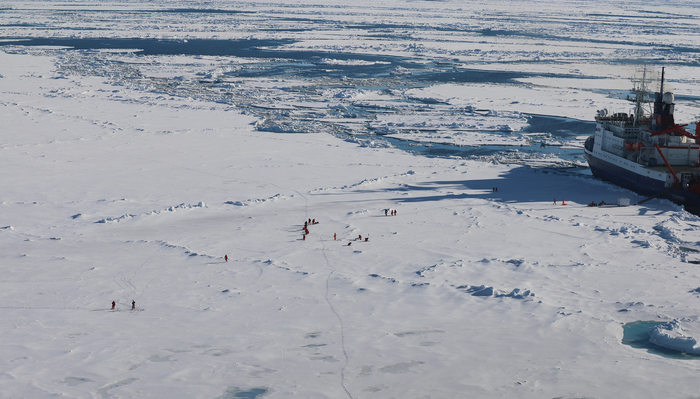Climate models used by the UN’s IPCC and others to project climate change are not accurately reflecting what the Arctic’s future will be. Researchers at the University of Gothenburg argue that the rate of warming will be much faster than projected.

Credit: Photo: Céline Heuzé
Climate models used by the UN’s IPCC and others to project climate change are not accurately reflecting what the Arctic’s future will be. Researchers at the University of Gothenburg argue that the rate of warming will be much faster than projected.
Due to the Arctic´s sea ice cover and its harsh climate, relatively few observations are made in that part of world. This means that the climate models used for projecting the future of the Arctic have not been calibrated to the same extent there as in other parts of the world.
Two recent scientific studies involving researchers from the University of Gothenburg compared the results of the climate models with actual observations. They concluded that the warming of the Arctic Ocean will proceed at a much faster rate than projected by the climate models.
Climate models underestimate the consequences
“These climate models underestimate the consequences of climate change. In reality, the relatively warm waters in the Arctic regions are even warmer, and closer to the sea ice. Consequently, we believe that the Arctic sea ice will melt away faster than projected,” explains Céline Heuzé, climatologist at the University of Gothenburg and lead author of one of the studies.
Warm water flows into the Arctic Ocean via Fram Strait between Greenland and Svalbard. However, the volume of water in these ocean currents and its temperature in the climate models are too low, which is one of the reasons why the climate models’ projections will not be accurate. Even the stratification of the Arctic Ocean is incorrect. The researchers argue that since roughly half of the models project an increase and the other half a decrease in stratification, the consequences of global warming cannot be estimated accurately.
Acquiring hard data in the Arctic must be prioritised
“This is a serious situation. If governments and organisations all over the world are going to rely on these climate models, they must be improved. Which is why research and data acquisition in the Arctic ocean must be prioritised. At present, we cannot provide a useful prediction of how quickly the Arctic sea ice is melting,” Céline Heuzé explains.
The Arctic is an important region for projecting what the future intensity of global warming will be. Its sea ice contributes an albedo effect – a white surface that reflects sunlight away from the planet. If the ice were to disappear, more solar radiation would reach the Earth.
“We need a climate model that is tailored to the Arctic. In general, you can’t use the same model for the entire planet, as conditions vary considerably. A better idea would be to create a specific model for the Arctic that correctly factors in the processes occurring in the Arctic Ocean and surrounding land areas,” Céline Heuzé explains.
Journal
Journal of Climate
DOI
10.1175/JCLI-D-22-0194.1
Method of Research
Meta-analysis
Article Title
The Deep Arctic Ocean and Fram Strait in CMIP6 Models
Article Publication Date
4-Jan-2023




